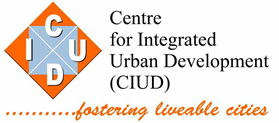On 11th August, 2017, an orientation program on ‘Capacity Building of Front Line Workers for Public Health Emergency (PHE) Preparedness’ was conducted in Chandragiri Municipality by CIUD under “Safe and Resilient WASH Intervention in Institutes of the Kathmandu District and Community PHE Preparedness in Kathmandu District – Project” supported by UNICEF. The participants of the program were Female Community Health Volunteers (FCHVs) of the same municipality.
On 11th August, 2017, an orientation program on ‘Capacity Building of Front Line Workers for Public Health Emergency (PHE) Preparedness’ was conducted in Chandragiri Municipality by CIUD under “Safe and Resilient WASH Intervention in Institutes of the Kathmandu District and Community PHE Preparedness in Kathmandu District – Project” supported by UNICEF. The participants of the program were Female Community Health Volunteers (FCHVs) of the same municipality.
The main objective of the event was to orient FCHVs about their roles and responsibilities in preventing cholera and at the time during cholera outbreak. The facilitation of the program was done by Ms. Reecha Piya (Health and Hygiene Officer, CIUD) and Ms. Urmila Maharjan (Community Development Officer, CIUD). The participants were oriented about cholera, other water-borne diseases and their causes. By assigning various group works, they were made to present the importance of proper use of sanitation facilities, hand washing and food hygiene. The water purification techniques such as boiling, chlorination and filtration were also discussed, as safe and pure drinking water plays a crucial role in preventing different water-borne diseases. The FCHVs were also taught to use P/A Vial (a kit to identify presence or absence of E. coli) so that they would be able to determine if the water used by their community was contaminated by E.Coli bacteria. Similar types of programs were conducted to the FCHVs of Tokha Municipality and Kankeswori Municipality.
